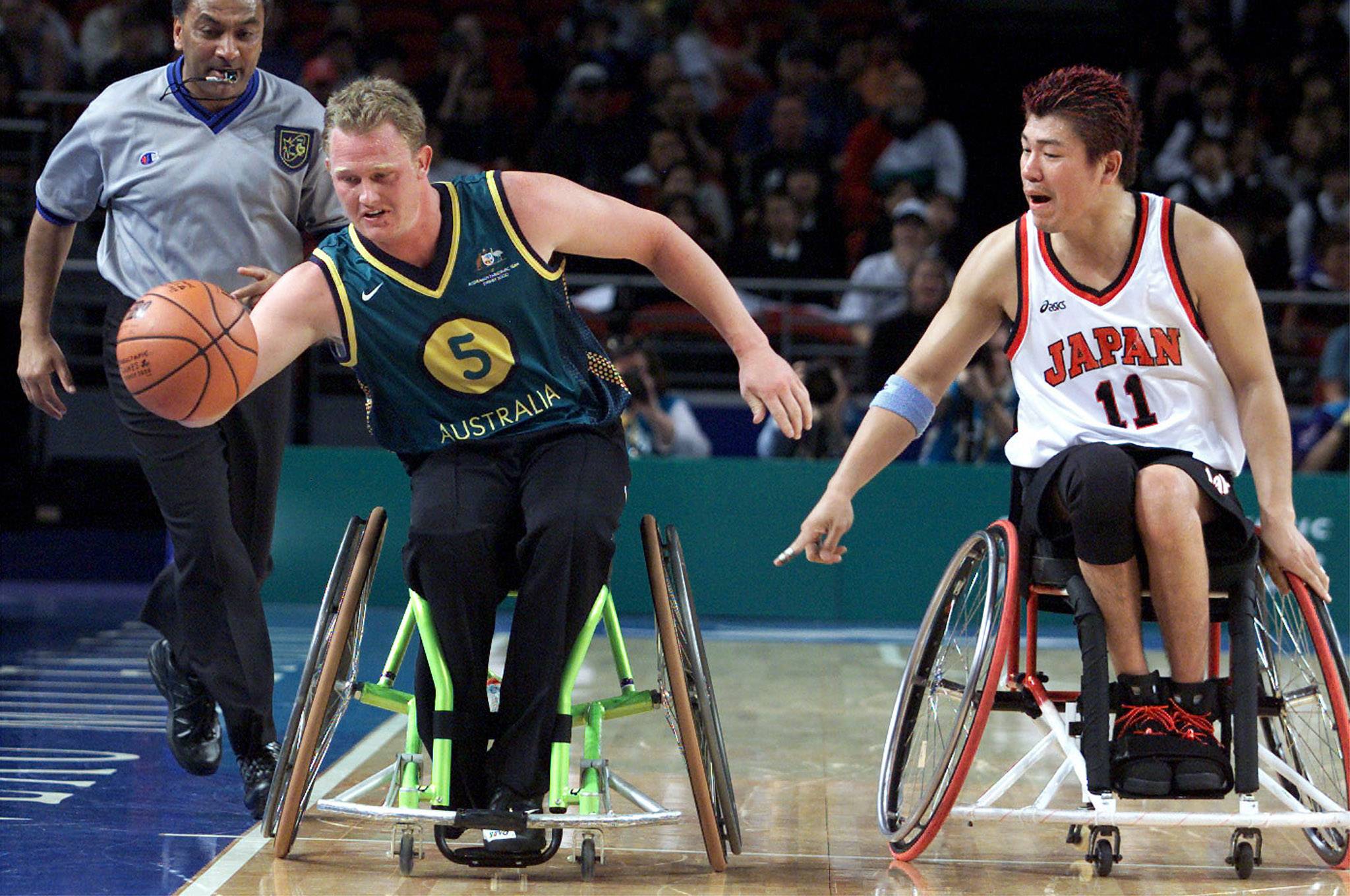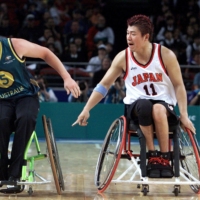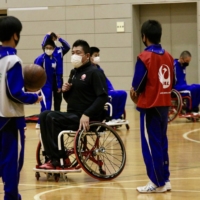This summer’s Tokyo Paralympics won't only be a major opportunity to promote para sports in Japan. It’s also a chance to draw more attention to people with disabilities — an important step toward creating a more inclusive society.
While Paralympian Yasuhiro Jimbo insists Japan isn’t too far behind other advanced countries like the United States and some European nations in terms of barrier-free facilities, he feels there’s room to catch up in other areas — namely in the way the able-bodied public treats and interacts with those with disabilities.
“I think Japan is doing really good from the hardware perspective,” Jimbo said in an interview. “I’ve traveled all around the world, but Japan is much better than countries like Britain. But I understand that we have the national character that you don’t really talk to strangers, but you don’t really ask (the people with disabilities) if they are fine and things like that.”
Jimbo, who competed in four straight Paralympics in men’s wheelchair basketball starting with the 1992 games in Barcelona, thinks Japanese society can make progress if people are educated about those with disabilities — especially from an early age.
That’s why he spent one December afternoon in the gymnasium at Yokoshibahikari Junior High School in Chiba Prefecture, where he gave a demonstration of his sport and told a group of second-year students the story of how he overcame the hardship of severely damaging his spinal cord in a motorcycle accident at age 16.
His presentation was a part of the “Asuchare! School” Challenge for Tomorrow program hosted by the Nippon Foundation Paralympic Support Center. The program, which began in 2016, has held events at over 1,000 elementary, junior and senior high schools across Japan, with para athletes like Jimbo serving as lecturers. Last year, the program was held at a Japanese school in Singapore as well.

Children in the junior high age group are generally more shy than those in elementary or high school, and the Yokoshibahikari students seemed almost unsure about how to react to Jimbo’s lecture at the outset.
In time, though, and as things progressed, they warmed up — especially after a session during which they could use wheelchair basketball chairs, specifically designed for the sport, in a race.
Nanami Ihashi, the captain of the school’s boy’s basketball team, beamed as he noted how different it felt to shoot while seated in the wheelchair. He said he’d be watching the sport with greater interest during the Tokyo Paralympics this summer.
“I’d always thought I’d need to care about them,” Ihashi said when asked if the presentation had changed his perceptions of the differently abled. “But after this experience, I want to pay even more attention to them.”
Jimbo stressed the message he most wanted to convey was not just about the Paralympics, but how to take a hit and keep moving forward in life.
The 50-year-old explained that there are kids who are not enjoying their lives at school and don’t have any aspirations for the future, and that he hopes to inspire them by sharing his own experiences.
“You have a chance to learn about the Paralympics somewhere else and from someone else,” said Jimbo, who was part of the U.K.’s national team staff during the wheelchair basketball world championships in 2018. “But from me, I want them to know you can get over the humps in your life and feel like anyone can do it. That’s my mindset going into every Asuchare event.”
Jimbo also believes holding the Paralympics in the nation’s capital has the power to help nudge Japan toward becoming a more inclusive society.
“We had the games in Nagano (the 1998 Winter Olympics). But in terms of giving the public a chance to open their eyes to diversity, the Tokyo games will have an even bigger influence,” Jimbo said. “Then, I think Japan will make a step forward from there and have a more open society.”





